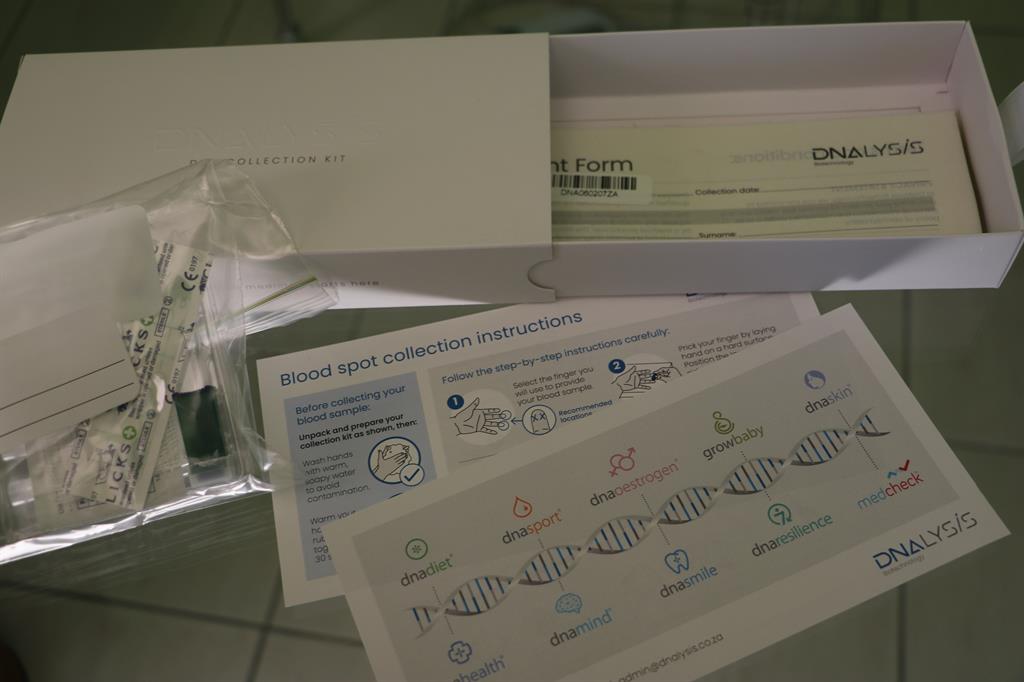The laws of inheritance
It helps us understand the reaction of our bodies to foods, supplements, and beverages.
Henriette Lamprecht – With technology advancing so fast, it is now able to identify the demands of our bodies through studying its genetics. Enter nutrigenomics, a test that helps us determine the relationship between our nutrition requirements and our genetics in order to stay healthy. This test also helps us understand the reaction of the body to foods, supplements, and beverages, explains Dr Penehafo Haitamba-Shinduwe.
But why is it so important to do this testing?
“Technology has advanced so much that we are able to identify the demands of your body through studying its genetics.”
Now, one has the potential to optimize your health outcomes by personalizing your diet, lifestyle, and supplement requirements according to your own genetic make-up. It removes the guessing game.”
The benefits are numerous, but mostly that you get to go about life by understanding what your genetics say about you.
“For example, some people have been exposed to all sorts of fad diets in attempts to lose weight. Now, with these tests, you are able to find out which diet works best for you.”
With nutrigenomics tests, you get a nutrition profile that is personalized to your body and genes. This nutrition profile will help you in determining the ideal ratio of proteins, carbs and fats your body requires to remain fit and healthy
“You get recommendations about the exercise, diet, and lifestyle changes you need to make to remain healthy based on your genetic makeup.”
You will also get a clear insight into the genetic disposition you have for exercise. This information will help you in determining whether you will benefit from a particular exercise or not and what exercise you should do to reach your fitness and well-being goals.
This is the future, says Haitamba-Shinduwe.
“The idea of knowing what your genetics say about your nutrition requirements means that you are able to root out the guessing game completely and therefore spend more time and money on what’s important.
“Maybe you are not able to convert sunlight to Vitamin D appropriately and therefore become deficient easily. Or, you don’t do well on a keto or vegan diet. If tested, one can find out easily and find a solution quicker.”
The tests are also able to uncover genetic predispositions and prevent chronic conditions from ever physically developing by modifying your lifestyle and behaviour beforehand.
“The good thing is that, once this test is done, you will know for life what your genes dictate around that certain issue.”
According to Haitamba-Shinduwe, nutrigenomics has been studied since the 1800s, when researcher Gregor Mendel used his experiments with pea plants to uncover the laws of inheritance.
In the 1970s, nutrition research became a hot topic. The policy began to focus on how diet could be used to prevent and treat chronic diseases. By the 1980s, companies were commercializing nutrigenomics.
“The Human Genome Project of the 1990s, which sequenced the entire DNA in the human genome, jump-started the science of nutrigenomics.”
By 2007, scientists were discovering numerous interrelationships between genes, nutrition, and disease.
“This is where the adage ‘prevention is better than cure’ comes into effect.” – [email protected]; www.happyhealth.com.na
But why is it so important to do this testing?
“Technology has advanced so much that we are able to identify the demands of your body through studying its genetics.”
Now, one has the potential to optimize your health outcomes by personalizing your diet, lifestyle, and supplement requirements according to your own genetic make-up. It removes the guessing game.”
The benefits are numerous, but mostly that you get to go about life by understanding what your genetics say about you.
“For example, some people have been exposed to all sorts of fad diets in attempts to lose weight. Now, with these tests, you are able to find out which diet works best for you.”
With nutrigenomics tests, you get a nutrition profile that is personalized to your body and genes. This nutrition profile will help you in determining the ideal ratio of proteins, carbs and fats your body requires to remain fit and healthy
“You get recommendations about the exercise, diet, and lifestyle changes you need to make to remain healthy based on your genetic makeup.”
You will also get a clear insight into the genetic disposition you have for exercise. This information will help you in determining whether you will benefit from a particular exercise or not and what exercise you should do to reach your fitness and well-being goals.
This is the future, says Haitamba-Shinduwe.
“The idea of knowing what your genetics say about your nutrition requirements means that you are able to root out the guessing game completely and therefore spend more time and money on what’s important.
“Maybe you are not able to convert sunlight to Vitamin D appropriately and therefore become deficient easily. Or, you don’t do well on a keto or vegan diet. If tested, one can find out easily and find a solution quicker.”
The tests are also able to uncover genetic predispositions and prevent chronic conditions from ever physically developing by modifying your lifestyle and behaviour beforehand.
“The good thing is that, once this test is done, you will know for life what your genes dictate around that certain issue.”
According to Haitamba-Shinduwe, nutrigenomics has been studied since the 1800s, when researcher Gregor Mendel used his experiments with pea plants to uncover the laws of inheritance.
In the 1970s, nutrition research became a hot topic. The policy began to focus on how diet could be used to prevent and treat chronic diseases. By the 1980s, companies were commercializing nutrigenomics.
“The Human Genome Project of the 1990s, which sequenced the entire DNA in the human genome, jump-started the science of nutrigenomics.”
By 2007, scientists were discovering numerous interrelationships between genes, nutrition, and disease.
“This is where the adage ‘prevention is better than cure’ comes into effect.” – [email protected]; www.happyhealth.com.na







Comments
Namibian Sun
No comments have been left on this article